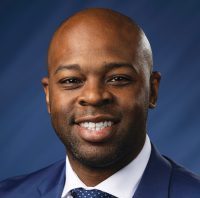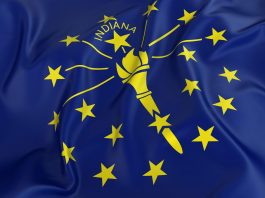America and the Wolf by the Ears
- By John Krull, TheStatehouseFile.com
- Updated
- CHARLOTTESVILLE, Virginia—Thomas Jefferson wrote a section of the Declaration of Independence that never made it into the final draft.
Jefferson indicted King George III of Great Britain for introducing and countenancing the practice of buying, selling, and oppressing human beings into what were then the colonies.
“He has waged cruel War against human Nature itself, violating its most sacred Rights of Life and Liberty in the Persons of a distant People who never offended him, captivating and carrying them into Slavery in another Hemisphere, or to incur miserable Death, in their Transportation thither. This piratical Warfare, the opprobrium of infidel Powers, is the Warfare of the Christian King of Great Britain,†Jefferson wrote.
His fellow members of the Continental Congress—many of them, like Jefferson, from the South who owned slaves—refused to include the language. They excised Jefferson’s sentences about the evils of slavery before formally declaring independence.
Thus began our national history of refusing to talk about or even acknowledge our greatest national evil.
I’m in Charlottesville for a night. The place is now a bustling college town. On the outskirts is Monticello, the mountain home Jefferson loved and spent much of his lifetime modeling and remodeling, driving himself further into bankruptcy in the process.
Jefferson founded the University of Virginia, the school that makes this a college town.
That is one of the three achievements he listed on his tombstone. The other two were drafting the declaration and the Virginia statute guaranteeing religious freedom.
He chose not to mention his service as governor of Virginia, ambassador to France … or president of the United States.
Jefferson has been indicted on charges of rank hypocrisy for drafting the language indicting the British king regarding slavery.
Jefferson, after all, owned slaves himself—and sold them when his debts mounted, separating families and friends. The evidence also is overwhelming that he had a long sexual relationship with Sally Hemmings, an enslaved woman he inherited from his late father-in-law.
But Jefferson resists easy assessments of his character.
He was the most complex of our nation’s founders, a man so complicated and guarded that he mystified even his closest friends. His contradictions are as vast as the nation he helped write into being.
He devoted his life to turning his mountaintop mansion into the perfect home, a place at which he said he longed to spend all his days, but either schemed to gain political power or was pulled away from it by a sense of duty—depending upon who tells the story—for decades at a time. He argued often for limited government but greatly expanded the federal government’s power—and the nation’s scope—through the Louisiana Purchase.
His relationship with race was just as tortured.
Jefferson was one of the most eloquent critics of slavery at the beginning of our republic. He spent much of his life exploring ways to free his slaves and entertained early abolitionists at his home.
But he never did so.
His relationship with Hemmings also illustrates the intimacy of the evil of slavery. She was the half-sister of Jefferson’s late wife.
Jefferson’s family lore has it that he promised his wife on her deathbed he would never marry again, so their daughters would know no other mother.
Hemmings was said to resemble her half-sister. By law, Jefferson could not marry her, so he could keep the promise he made on his wife’s deathbed.
Jefferson and Hemmings had children. Those enslaved people he did free—but without acknowledging his paternity.
To think he indicted the king as a way of escaping culpability himself may oversimplify Jefferson.
It’s possible he wrote so searingly because he had intimate knowledge of the ways slavery taints the souls and lives of all it touches and felt a just government should have prevented such a great wrong.
As I sit in this community where Thomas Jefferson spent his last years, I ponder what he would make of America’s struggles with race today. The U.S. Supreme Court recently declared that the nation owes no historic debt to those it oppressed. Millions of Americans disagree.
Jefferson once famously compared American slavery to holding a wolf by the ears, saying we dared not hold on but also dared not let go.
Nearly 250 years after he wrote us into independence, America struggles to acknowledge the wrong it has done.
Just as it did at the nation’s beginning.
FOOTNOTER: Â John Krull is director of Franklin College’s Pulliam School of Journalism and publisher of TheStatehouseFile.com, a news website powered by Franklin College journalism students. The views expressed are those of the author only and should not be attributed to Franklin College.



